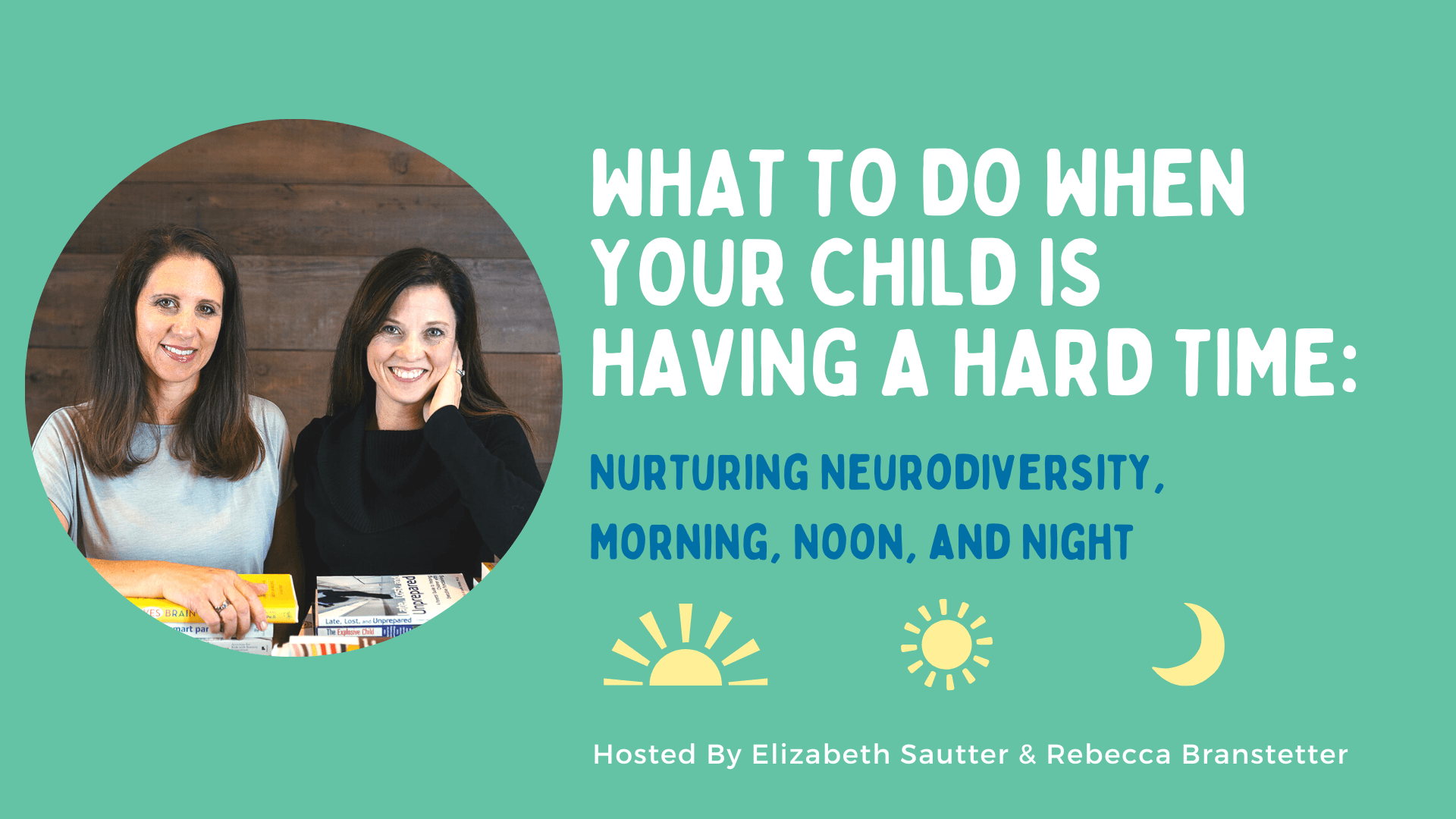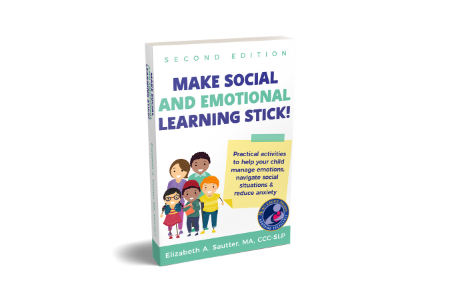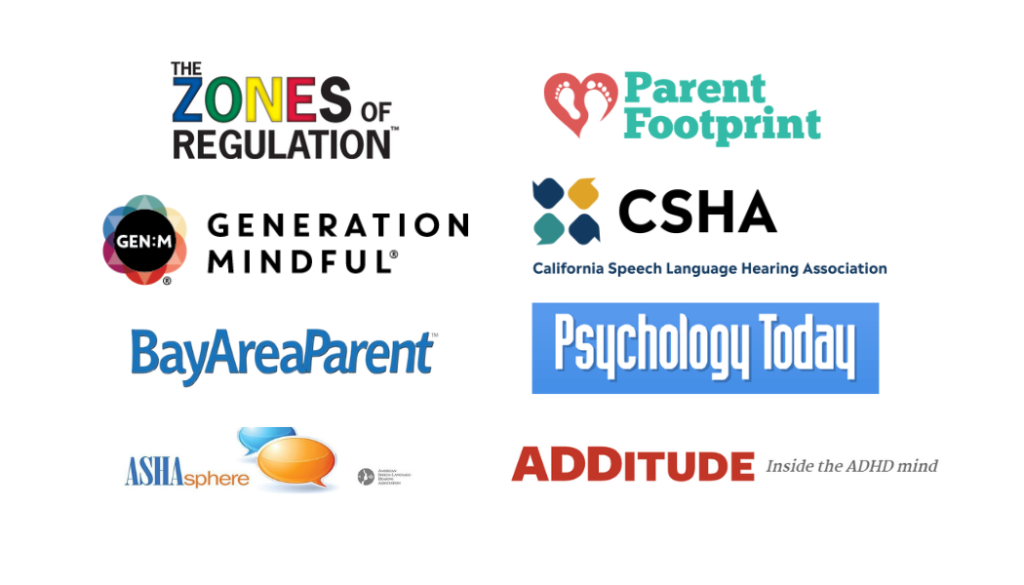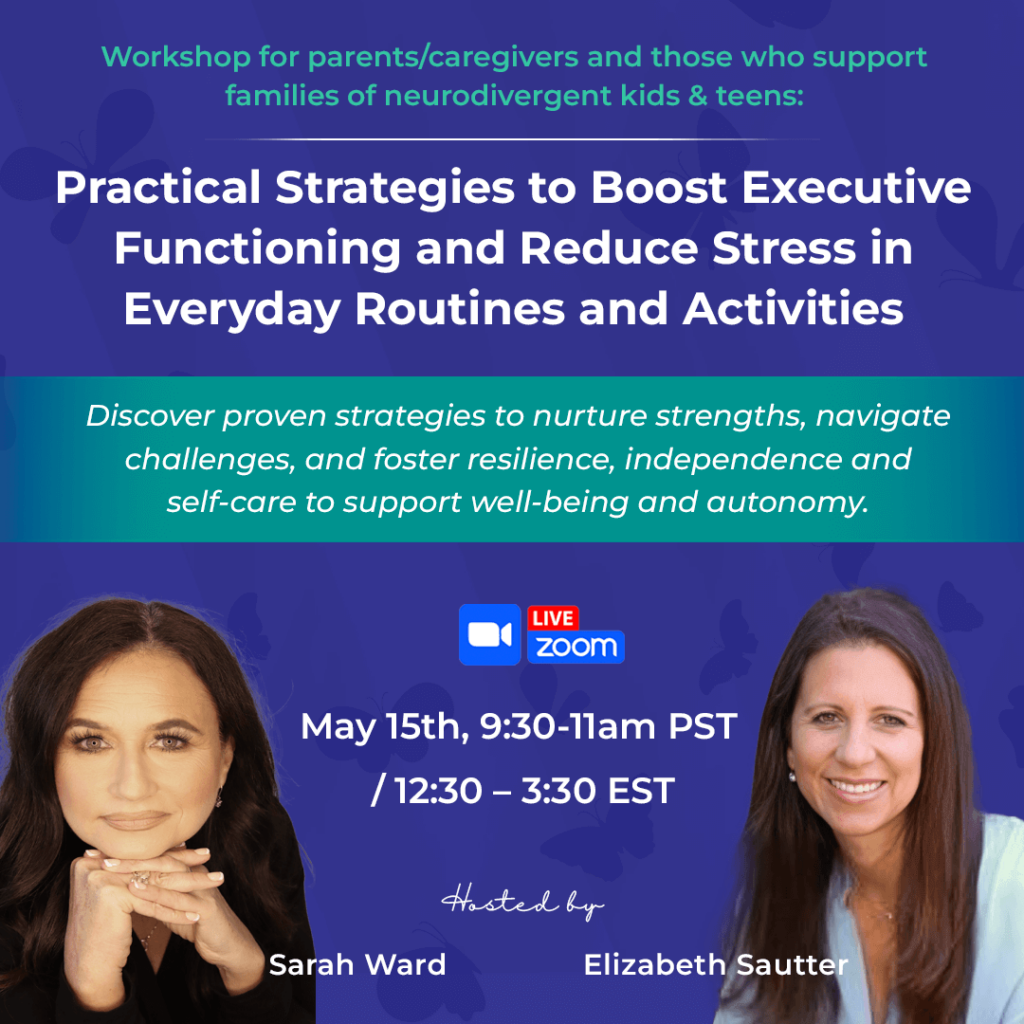MAKE SOCIAL-EMOTIONAL WELL-BEING STICK
THROUGH EVERYDAY ROUTINES AND ACTIVITIES
FREE Mini 20-Minute Workshop for Parents!
What To Do When Your Child Is Having A Hard Time: Nurturing Neurodiversity, Morning, Noon and Night.
Join speech-language pathologist Elizabeth Sautter and school psychologist Dr. Rebecca Branstetter in this on-demand crash course today!

Through love and connection, let's...
- Discover how to nurture and support your child’s ability to manage their emotions, anxiety, and overwhelm.
- Help your child navigate and develop meaningful social relationships with peers, siblings, and others.
- Enable your child (and you) feel calm, confident and connected.
Help kids manage emotions, navigate social situations and reduce anxiety.

FREE PARENTING TRAINING
This 25-minute class gives you support & tools to manage the frustration and overwhelm that come when you question your parenting capabilities.

THE BOOK
Check out this busy parent’s guidebook, filled with practical activities to help your child manage emotions, navigate social situations & reduce anxiety. A happier home-life is one book away!

FREE RESOURCES
Here’s the place for all our free downloads, interviews, articles and other information that we’ve curated for you to create more ease in your parenting journey. Enjoy!

The “Make Social and Emotional Learning Stick book and card decks are both recipients of the prestigious Mom’s Choice Award®
The Mom’s Choice Award evaluates products and services created for children, families and educators The program is globally recognized for establishing the benchmark of excellence in family-friendly media. products and services
Hi! I’m Elizabeth Sautter, M.A., CCC
Speech and Language Pathologist
Before I had children, I thought that my personal and professional experience was going to equip me with all the tools and strategies needed to raise healthy, happy, well-adjusted children. But by the time my children hit adolescence, my tools weren’t working. Even as a trained professional, I struggled to find effective ways of supporting the social and emotional needs of my children, as I helped them navigate big emotions, low motivation, and social anxiety. For years this kept me up at night, searching for more information…looking for the next tool, the next magic trick. I realized that I needed more.
I went back to the research and literature and the philosophy of positive discipline. I realized that there is not one magic trick or strategy…it’s a process and a journey.
I also realized that many other parents are on a similar path and would benefit from having the resources and information provided and laid out in a systematic format that they can access whenever they need and created many resources to help parents deal with their children’s social and emotional needs.
I’m not only teaching what works, but I’m practicing it every day. It’s not always easy, but armed with successful parenting tools and a community of parents just like you, you can face the ups and downs of parenting with renewed excitement.
Executive Function Coach,
Learning Specialist, and Parent
Our Favorite Blog Posts…

Unleashing Genuine Engagement – It’s Much More Complex than ‘Are You Listening to Me?’
In today’s society, the expectations around listening are often confined to visible behaviors and outward compliance, overshadowing the deeper aspects

Nurturing the Inner Child: A Reparenting Journey
Understanding Our Inner Child: Meet Beth Hi there! I want to share something that’s been a game-changer for me. It’s

5 Simple Steps for Setting Intentions for Yourself and Your Family
As we enter the new year, you’re likely being bombarded with reminders or some internal pressure to make resolutions about

3 Ways to Cultivate Generosity and Social-Emotional Learning Over the Holidays With Your Kids
As we navigate the swift passage of time, focusing on values that nurture both our children’s social-emotional development and our
Elizabeth Sautter, M.A., CCC-SLP
and Make Social Learning Stick! have been featured in:




